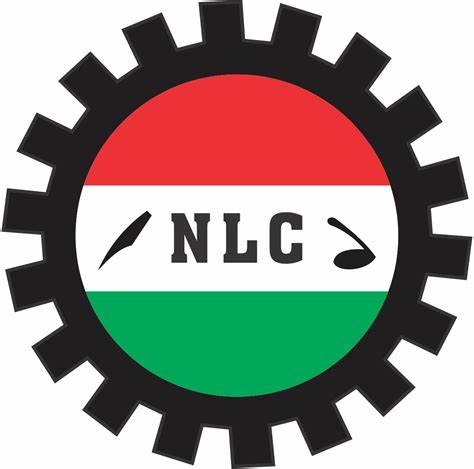by Adedayo Ademuwagun
Jide finished secondary school in 2010 and spent the next three years at home. He wrote the university entrance exams each year and scored decently, but he got no offers from the universities he applied to. So he ended up hanging around at home for three years.
Last year he learned about the new federal university in his state, Ekiti, and decided to apply. Finally, he had found a university that was willing to accept him.
The federal government created nine new universities three years ago and many young people like Jide have benefited from that policy, which is a hallmark of President Goodluck Jonathan’s administration.
The universities created include Federal University of Dutse in Jigawa, Federal University of Dutsin-Ma in Katsina, Federal University of Kashere in Gombe, and Federal University of Lokoja in Kogi. The others are Federal University of Ndufu-Alike in Ebonyi, Federal University of Otuoke in Bayelsa, Federal University of Oye Ekiti in Ekiti and Federal University of Wukari in Taraba.
The history of federal university creation in Nigeria began with the founding of the University College Ibadan in 1948. Nigeria had five universities in the first republic before the civil war, but the Gowon government set up eight more as part of its reform after the war.
By the time the second republic collapsed in 1983, there were 16 federal universities in all. Babangida added eight to this between 1985 and 1993. Then there were no more university creations at the federal level until Jonathan created nine in 2011, twenty-one years later.
Some people think the Jonathan administration should have put in more to upgrade the existing universities instead of establishing new ones. They think it’s not the right move.
Dr Femi Akinfala teaches at the University of Lagos. He says about the policy, “It’s not a good idea. The problem is not about the number of schools available, it’s about the standard of the schools available. The government should have spent the money to develop facilities at the existing universities before committing to the new projects. If you go to many of the schools around, you’ll see some substandard facilities. Some have poorly stocked libraries and things like that. It’s like the government hasn’t done enough to change all this, and it’s creating new schools. It doesn’t work like that.”
The number of students applying to university has really ballooned over the years. Less than 3,000 students applied to university in the entire country in 1964. But this year, the number of students who applied to University of Lagos alone is twenty times more than that.
There’s a huge demand for university education now. Every year over one million students sit the entrance exams, but the schools on the ground can only take a fraction of that number. Schools are being stretched to the limits. Many hostels and lecture theatres are overfilled. In some practicals, several students have to share equipment normally for one or two. The universities are overwhelmed, but there’s not enough going on to expand facilities and provide more equipment to contain the influx.
What this means for students like Jide who sit the UTME year after year is that the universities on the ground simply don’t have the space to take them all, even if they all pass the entrance exams. So this is where the new universities come in.
Each of the nine universities can take in at least 5,000 fresh students a year. That means these nine schools can mop up at least 45,000 students in a year and nearly half a million students in ten years. Students like Jide and their parents would like this idea, but Akinfala looks at it this way:
“The economy is a certificate-driven one where what mostly matters is your certificate and not the quality of the education you’ve received. But it shouldn’t be like that. The focus should be on quality and not quantity. But now, with the new schools, more students are getting into university every year and more graduates will be produced. But what does the quality look like?”
Most of the new schools are in rural states, so there are benefits both in the long term and short term. For instance, setting up a new university in a rural area creates jobs and boosts trade for the people around. When a new university begins its business, it hires staff and contractors. Students, staff and visitors to the school also patronise local businesses. The increased activity brings some new amenities and attracts new businesses to the place. So more people have work to do and more people can make money. In other words, the people can feel a change in their pockets and their community.
Many states in the country have less than half of the number of universities in some other states, so there’s an imbalance that translates to disparity in the educational development across the country. So the Jonathan government, like the previous governments, has tried to correct this disparity by creating more schools in states with the least number so that they can catch up and the young people there will have more access to university education.
The federal government also subsidises undergraduate tuition at all its universities, so students at federal schools typically pay a third of what their mates in state schools pay. In the long run, this makes university education more affordable for students in the states that now have a new federal university. So if Chidinma cannot afford the fees at the Ebonyi State University next year when she finishes secondary school in Abakaliki, she can apply to the new Federal University of Ndufu-Alike.
“I believe that Jonathan did well to create more schools,” says Saidat who recently finished university. “It’s something I’m impressed with, something I feel his successors should build on. We needed to increase our university capacity. It’s pretty frustrating for students who have to write the entrance exams repeatedly even when they score well, partly because there aren’t enough slots.
“I feel some people just want to bring down the hammer on Jonathan all the time, condemning his every move and overlooking it when he does something good. But you’ve got to give the president some credit. I don’t feel strongly about the president, but I think that creating the schools is really commendable.”















U are the best oga jona
It’s only lunatics that will see the truth and achievements of Nigeria and look for a way to condemn or ridiculed it. It is a great achievements by GEJ. He should site more close to related industries such as engineering school being sited close to Ajaokuta iron and steel that GEJ is working day and night to bring to life to send Chinese iron / metal importer back to Asia. He can also site engineering school close to Dangote or Mid oil refinery in ibeju lekki Lagos( work in progress). This will help in producing graduates with competence resolve our problem.
GEJ is the only Nigeria leader that took the bold step of privatizing our powers sector with some levels of errors just like telecom industry. When MTN came gsm was 35000 naija but today it’s almost free after 10yrs from its inception.in power privatisation, we have no other option than to make progress. Thanks GEJ but fight corruption cancer that is rubbishingYour good work.
GEJ government repaired all the train line that were dysfunctional for over20 years and he is constructing newer tracks to reduce transit time and increase its capacity.
GEJ government is the best in agriculture development and productivity in his of Nigeria. Thank to Honorable Akinwunmi Adesina, you are future leader.
GEJ should explain how he managed our foreign reserve for us to avoid judging hIm wrongly or any leader taking over from from comitng the same blunder if proven unworthy.
Let GEJ continue. Buhari is not a better candidate because he committed coup against Nigerian Nation, ALL the above achievement of GEJ government was not even initiated in his short tenure. He fought corruption in a wrong manner clear rejected by Nigerian civil societies. If he ever wins, He should first tackle development of Nigeria and later fight all corrupt politicIan’s to avoid being engaged in futile battle at risk of nation development and unity. I will not vote leaders that committed coup, rather I will call for their trials as deterence to serving force men. This is trend in organised nations.
Let me pause and hear you.
Nigerians!! Do we ever see things the way they are or accept the truth nomatter who is saying it. Nice one jona
oga face boko haram and leave sku 4 now
nice 1 oga goodluck….keep it up
how many pple dy go sku self
upon all dis unemployement
all dis is of no use
is dat what is next?oga jonah
he should give d mass d money
we r lost in dis world…..cos we dont what 2 do first
dis man is just wasting money
we dont need need that………….security ish still exist
is that what we need in nigeria now
GEJ… carry go. you are the best president Nigeria has ever had.